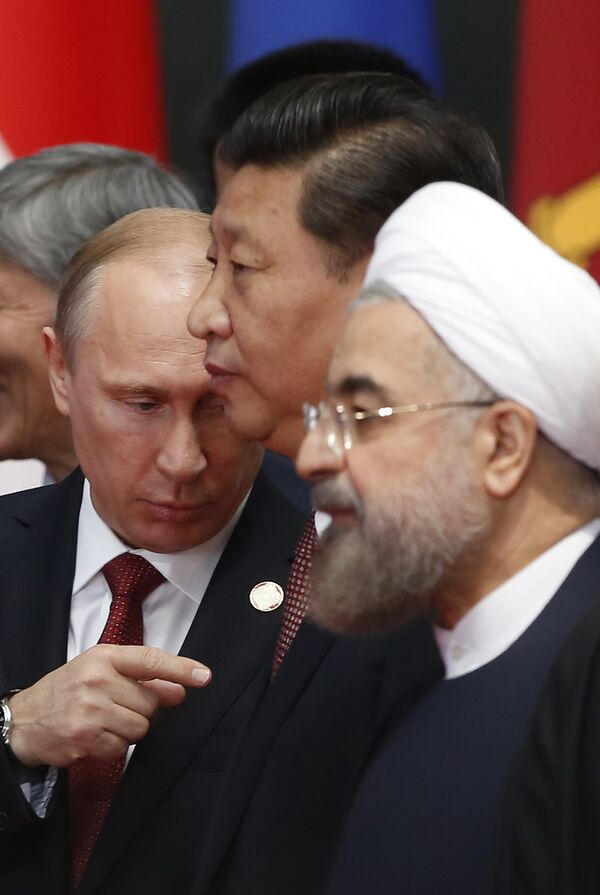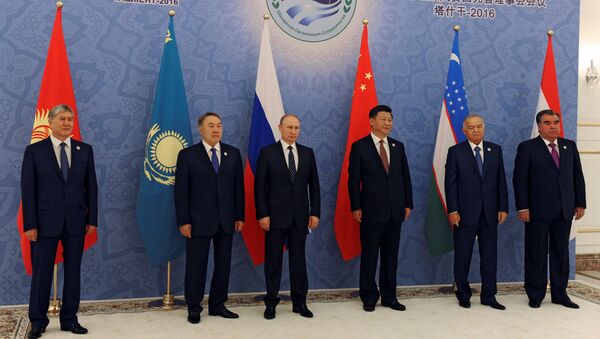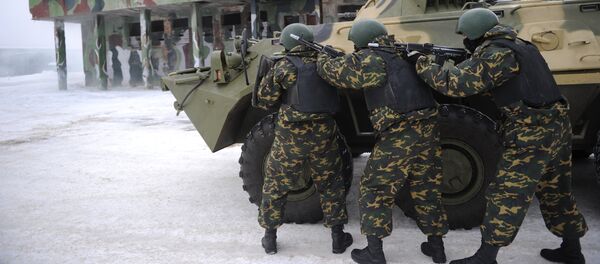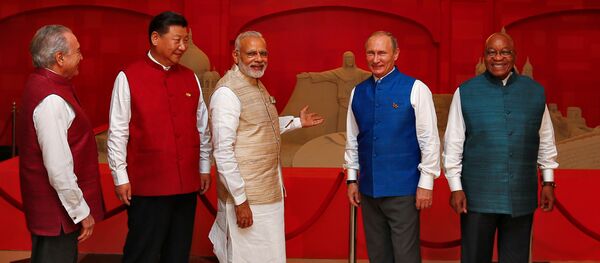Russia strongly supports Iran's bid for accession to the Shanghai Cooperation Organization (SCO) without delay, Bakhtiyor Khakimov, Russia's Special Presidential Envoy to the SCO signaled in mid-November, echoing the official statement made President Vladimir Putin this June.
"Iran has been actively participating in the organization's activity since 2005 as an observer. I think that after the settlement of the Iranian nuclear problem and removal of sanctions, there are no obstacles for a favorable consideration of Tehran's bid [for the SCO membership]," Putin said in his speech at an SCO summit which was held in June, 2016 in the Uzbek capital of Tashkent.
The question arises whether Tehran is ready to join the organization today, given that eight years have passed since its initial bid.
"A few key points need to be taken into consideration," Hamid Reza Azizi, assistant professor of regional studies at Shahid Beheshti University, Tehran, and expert in Eurasian affairs responded to Sputnik Persian.
"First, it is the official position taken by Iran back in 2008 in regard to its permanent SCO membership. This position has undergone significant changes. As you know, until recently Iran has been under the yoke of international sanctions, which did not allow the country to realize its plans to join international and regional alliances… After an agreement was reached on the Iran nuclear program and the realization of the Joint Comprehensive Plan of Action (JCPOA) has been kicked off, all barriers to Iran's integration to regional and international organizations have been removed," Azizi emphasized.
There were a number of additional obstacles in the way of Tehran's accession to the SCO, according to Azizi. For instance, back in 2008 the view prevailed that Iran's SCO membership would further aggravate tensions between Tehran and the US and the West in general. Therefore it was believed that the accession process had to be postponed.
On the other hand, according to the academic, there were no objective preconditions for further political and economic rapprochement between the Eurasian powers.

However, everything has changed since 2014.
"The Ukrainian crisis has prompted tensions between Russia and the US. Russia has adopted a new foreign policy course aimed at boosting its international alliances and regional coalitions, and expanding multilateral cooperation on the world's arena," Azizi pointed out, referring to Russia's cooperation with the SCO, BRICS and the rapid development of the Eurasian Economic Union (EEU).
"Despite the fact that with the launching of JCPOA the barriers to Iran's accession to SCO have been removed, the final decision depends on… whether key players (China and Russia) will be able to convince the other members [of the organization] of economic and political benefits from the accession of the Islamic Republic to this bloc," the Iranian academic emphasized.
For its part Iran is committed to economic integration and further rapprochement with Russia and China, Azizi believes.
In his recent article for online newspaper Vzglyad, Russian journalist Petr Akopov highlighted that both Moscow and Beijing have an interest in a strategic alliance with Iran.
The three countries are also playing an important role in solving the Syrian crisis. Although China does not take part in military actions on the ground, its diplomatic assistance to Syria and those who are fighting against Islamic extremists is invaluable, Iranian academic Mohsen Shariatiniya noted in his latest interview with Sputnik Persian.
According to Secretary General of the SCO Rashid Alimov, there is an increasing interest in joining the SCO organization in the world.
"There is an increasing interest and it will grow further. Before there was no expansion, we were waiting for the right time," Alimov told reporters Tuesday.
Following in Iran's footsteps, Turkey may be also soon knocking on SCO's door.





